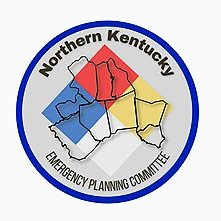
How To Report A Spill
How to report hazardous materials spills and when?
Anyone who possesses or controls hazardous substances:
As listed under the federal Comprehensive Environmental Response Compensation and Liability Act (CERCLA) of 1980, as amended.
Those extremely hazardous substances designated under Title III of the Superfund Amendments and Reauthorization Act (SARA) of 1986.
Nerve and blister agents designated under state law.
Who should report a release of a hazardous material to ERB?
It is the responsibility of the responsible party to report the spill immediately. Anyone who witnesses a "spill" or "release" of any hazardous materials should immediately call the ERB to ensure that the spill is remediated properly.
State law mandates under KRS 224.1-400 (6): Any person possessing or controlling a pollutant or contaminant for which a reportable quantity has been established by administrative regulation promulgated pursuant to subsection (2) of this section shall immediately notify the cabinet's environmental response line, as soon as that person has knowledge of any release or threatened release, other than a permitted release or application of a pesticide in accordance with the manufacturer's instructions, of a pollutant or contaminant to the environment in a quantity equal to or exceeding the reportable quantity. In the notice to be made to the cabinet, the person shall state, at a minimum, the location of the release or threatened release, the material released or threatened to be released, and the approximate quantity and concentration of the release or threatened release.
Who should report spills or a release of petroleum?
Reportable quantities (KRS 224.1-400):
25 gallons or more of a petroleum product within a 24-hour period
75 gallons or more of diesel fuel in a 24-hour period
or any amount that creates a visible sheen on surface waters
Who should I call to report a spill?
Locally, you should always call 911 to report a spill. After that, you should notify the Kentucky Emergency Response Branch, Kentucky Emergency Management at 800-255-2587, and the National Response Center at 800-424-8802, if applicable.
Does calling 911 fulfill my reporting requirement?
No, the Kentucky Emergency Response Branch does not have a memorandum of agreement with any city or county governments. You should never expect a call to 911 to fulfill your reporting requirements to the state or federal government. Calling 911 does fulfill the local reporting requirement.
Does a release into secondary containment constitute a reportable release?
Yes. Any release over the reportable quantity from the primary containment vessel into a secondary containment area is considered a release or a threatened release to the environment.
If the primary containment vessel and the secondary containment area are located inside a building that would not reach the outside environment, then the spill is not reportable to the Emergency Response Branch.
What happens if I do not report a release?
Under Kentucky law a non-reported release could result in payment of fines up the $25,000 per day per violation.
Boone County
859 371-1234 or 911
Campbell County
859 292-3622 or 911
Gallatin County
859 567-7020 or 911
Kenton County
859 356-3191 or 911
Owen County
502 532-7124 or 911
Pendleton County
911
Grant County
911
Robertson County
911
Bracken County
911









